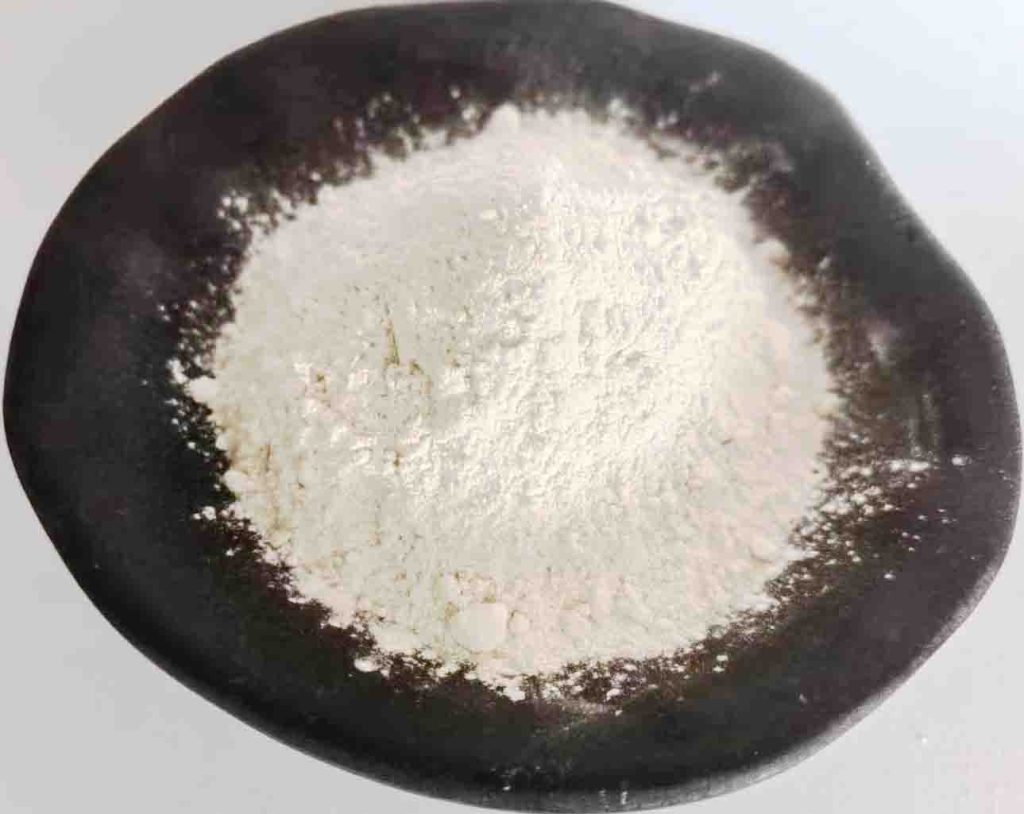Hydroxypropyl Methylcullulose
One of the notable benefits of utilizing hydroxypropyl methylcullulose in EIFS mortars is its capacity to reduce the thermal load on a building’s external walls. This attribute contributes to the lightweight nature of the material, making it a cost-effective solution. The hydroxypropyl methylcullulose for EIFS encompasses a range of high-purity, low-ash-content construction-grade cellulose ethers. Additives such as hydroxypropyl methylcullulose are specifically designed for use in dry-mix mortars and construction applications with high gel temperatures.
Hydroxypropyl methylcullulose significantly enhances the adhesion of EIFS mortar to various substrates, including insulation boards and base coats. This leads to an improvement in bond strength, ensuring the long-term structural integrity of the EIFS syst em. Hydroxypropyl methylcellulose is a prevalent additive found in building materials within EIFS mortars. Its water-soluble nature enables it to form transparent solutions that play a pivotal role in the formulation of EIFS mortars.
What is EIFS Mortar? | Hydroxy Propyl Methyl Cellulose
Exterior Insulation and Finish System is a sophisticated exterior wall cladding system that offers both aesthetic and functional benefits. It revolves around the application of rigid insulation boards to the exterior surface of a building’s wall sheathing. This insulation layer is then enveloped by an exterior skin, often resembling plaster or stucco in appearance. The primary objective of EIFS is to provide an energy-efficient thermal cladding solution for buildings.
EIFS mortar serves as a critical element within the EIFS system. It functions as the adhesive and bonding material that connects the rigid insulation boards to the underlying substrate, such as the wall sheathing. This mortar layer also contributes to the overall durability and weather resistance of the EIFS cladding. It acts as a secure foundation for the subsequent layers, ensuring that the insulation boards remain firmly in place.
The composition of EIFS mortar typically involves a mixture of various materials, including polymers, aggregates, binders, and additives. One common additive found in EIFS mortar formulations is hydroxypropyl methylcullulose or HPMC, which enhances properties like adhesion, flexibility, and workability. This mixture is applied to the insulation boards and forms a seamless surface that is both decorative and protective.
Major Differences of EIFS VS Stucco
EIFS stands out for its remarkable attributes that contribute to its popularity in modern construction. One significant distinction lies in its lightweight nature. EIFS is approximately 80% lighter than traditional stucco, weighing in at around 2 pounds per square foot. This lightweight characteristic not only eases the installation process but also minimizes the structural load on the building, allowing for more versatile architectural designs.
EIFS exhibits resilience against weathering, cracking, and impact, offering a prolonged service life. EIFS contributes to energy efficiency by enhancing the building’s thermal insulation, which helps regulate indoor temperatures and reduces energy consumption. The system’s design also results in low air infiltration, further aiding in energy conservation and maintaining indoor comfort.
Affordability is a notable aspect of stucco, making it an attractive choice for budget-conscious projects. Stucco is also renowned for its ease of repairs. Localized damages or imperfections can be addressed with relative simplicity, which is particularly advantageous for maintaining the integrity of the exterior over time.
Both EIFS and stucco formulations benefit from the inclusion of hydroxypropyl methylcellulose. In EIFS, hydroxypropyl methylcullulose contributes to the formulation of the mortar layer that bonds insulation boards to the substrate. Its improved adhesion and flexibility enhance the overall performance of the EIFS system. In stucco, HPMC may be used to modify properties like workability, water retention, and adhesion. This can result in easier application and improved adhesion to substrates, leading to a more durable and consistent stucco finish.
Functions of HPMC in EIFS Mortar
Hydroxypropyl Methylcellulose has great impact in formulation of Exterior Insulation and Finish System mortar. These are the following aspects the hydroxypropyl methylcullulose affects the coating mortar:
Adhesivity | Hydroxymethyl Cellulose
Adhesion is a critical attribute in EIFS systems, as it determines the ability of the mortar to securely bond various layers together and adhere to different substrates. HPMC imparts enhanced adhesivity to EIFS mortar through its multifaceted properties. As an additive, hydroxypropyl methylcullulose improves the mortar’s ability to grip and establish a durable bond with both the insulation boards and the underlying substrate. HPMC works by modifying the rheological properties of the mortar, optimizing its consistency and workability. This ensures that the mortar can be easily spread, providing even coverage and consistent adhesion.
Operationality
HPMC significantly influences the operationality of EIFS mortar through its effects on workability and mixability. The presence of hydroxypropyl methylcullulose in the mortar mixture enhances its workability, enabling smoother application and ease of spreading. This is especially important when dealing with intricate architectural features or irregular surfaces.
Water Retention
HPMC acts as a water retention agent in EIFS mortar formulations. When hydroxypropyl methylcullulose is incorporated into the mortar mixture, it forms a gel-like structure that traps water molecules. This gel matrix prevents rapid evaporation of water from the mortar surface. The presence of hydroxypropyl methylcullulose ensures that the mortar remains in a workable state for a longer duration, providing installers with sufficient time to spread and position the mortar onto the substrate and insulation boards.
Moreover, the controlled release of water from the HPMC gel matrix can contribute to improved hydration of cement particles over time, leading to enhanced mortar durability and long-term performance. This property is especially advantageous in exterior applications where exposure to varying weather conditions is inevitable.
Dispersibility of Hydroxypropyl Methyl Cellulose
In EIFS mortar formulations, achieving proper dispersibility of additives is crucial for ensuring consistent properties throughout the mixture and subsequent application. When adding hydroxypropyl methylcullulose to the mortar mixture, it forms a colloidal solution with water, creating a stable and homogeneous dispersion. This dispersion facilitates the even distribution of HPMC particles within the mortar, preventing them from settling or agglomerating.
Stability
The stabilizing effect of HPMC is particularly evident during the mixing process. As the mortar components are blended, HPMC ensures that particles remain uniformly dispersed, minimizing the risk of clumping or agglomeration. This results in a homogenous mixture that consistently delivers the intended properties and performance characteristics.
HPMC’s stabilizing role extends to the application stage. The gel-like structure formed by hydroxypropyl methylcullulose helps maintain the integrity of the mortar mixture, preventing the separation of water and other components during the application process. This ensures that the applied mortar retains its uniform composition, workability, and adhesive properties, contributing to a successful and reliable EIFS installation.
Opening Time
HPMC contributes to extending the opening time of EIFS mortars by influencing their rheological properties. When hydroxypropyl methylcullulose is introduced into the mortar mixture, it imparts a distinct viscosity-enhancing effect. This viscosity increase creates a gel-like structure that effectively retards the rate of water evaporation from the mortar’s surface. As a result, the mortar retains its desired consistency and workability for a longer duration, extending the time window within which it can be applied effectively.
By extending the opening time of EIFS mortar, end consumers can get the advantage of precise application, thorough coverage and a seamless finish, minimizes the risk of rushed work, and enhances adhesion.
Thickening Property
The increased viscosity resulting from Hydroxypropylmethylcellulose HPMC thickening ensures that the mortar maintains its shape and consistency during application. This makes it easier to spread the mortar evenly and achieve uniform coverage on insulation boards and substrates. The thickened mortar is less prone to sagging or slumping on vertical surfaces. Thickened mortars tend to adhere better to substrates, enhancing the bond strength between the mortar, insulation boards, and the underlying surface.
Importance of Good Quality HPMC in EIFS Construction
The use of good quality Hydroxypropyl Methylcellulose HPMC in EIFS construction yields a multitude of benefits. If you choose a reliable HPMC product supplier like Tripletchem, you can confidently work with materials that contribute to effective, durable, and energy-efficient building envelopes.
Convenience in Use
The quality of hydroxypropyl methylcullulose directly impacts the convenience of EIFS construction. High-quality HPMC is characterized by consistent performance and reliable properties. When incorporated into EIFS mortar formulations, good quality HPMC ensures that the mortar maintains its desired characteristics, such as workability, adhesion, and open time. This consistency simplifies the application process for contractors, allowing them to work with a predictable and manageable material, ultimately leading to smoother and more efficient construction.
Space Saving
Since hydroxypropyl methylcullulose is typically supplied in a powdered form, it occupies significantly less space compared to pre-mixed liquid additives. This makes transportation and storage more efficient, reducing logistical challenges and costs associated with handling and storing bulky materials. Contractors can appreciate the convenience of handling a compact yet versatile additive that expands in functionality upon mixing.
EIFS with HPMC Deliver Excellent Breathability
Good quality HPMC contributes to the breathability of EIFS systems. Breathability refers to a material’s ability to allow moisture vapor to escape while preventing the ingress of liquid water. EIFS mortars formulated with high-quality HPMC can maintain a delicate balance between moisture resistance and breathability. This attribute is crucial for preventing moisture buildup within the EIFS system, which could lead to potential issues such as mold growth and deterioration of building materials.
Offer Thermal Efficiency
EIFS systems are designed to enhance a building’s insulation properties, and HPMC further supports this goal. When good quality hydroxypropyl methylcullulose is integrated into the mortar mixture, it helps maintain consistent insulation and coverage of the insulation boards. This contributes to the overall thermal performance of the EIFS system, aiding in temperature regulation and energy conservation.
Hydroxypropyl methylcullulose (HPMC) plays a crucial role in optimizing the performance of exterior insulation and finish system or EIFS mortars. These mortars are essential for ensuring strong adhesion and flexibility across diverse outdoor climate conditions. By harnessing hydroxypropyl methylcullulose, these mortars exhibit enhanced adhesive strength and flexibility, which in turn improves the overall effectiveness of EIFS adhesives and coatings.


